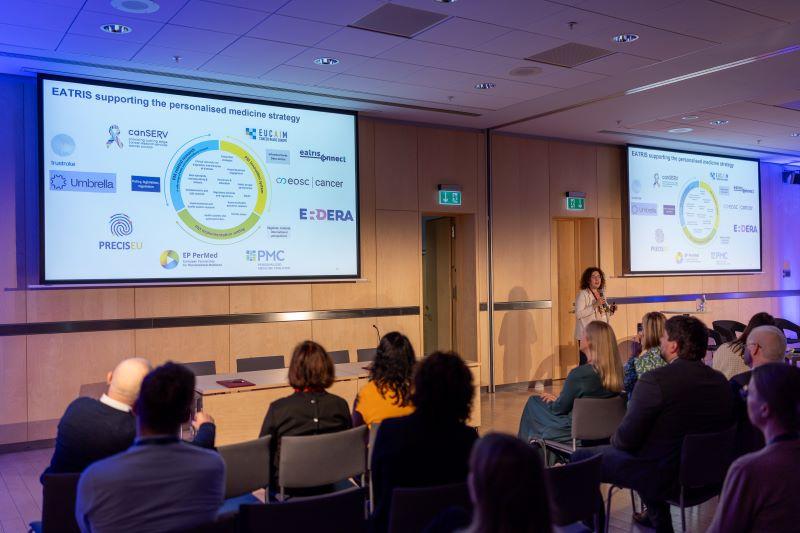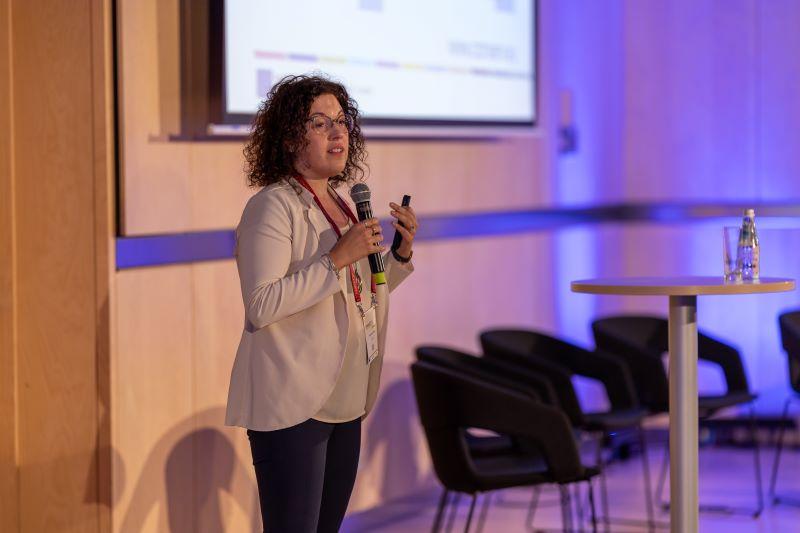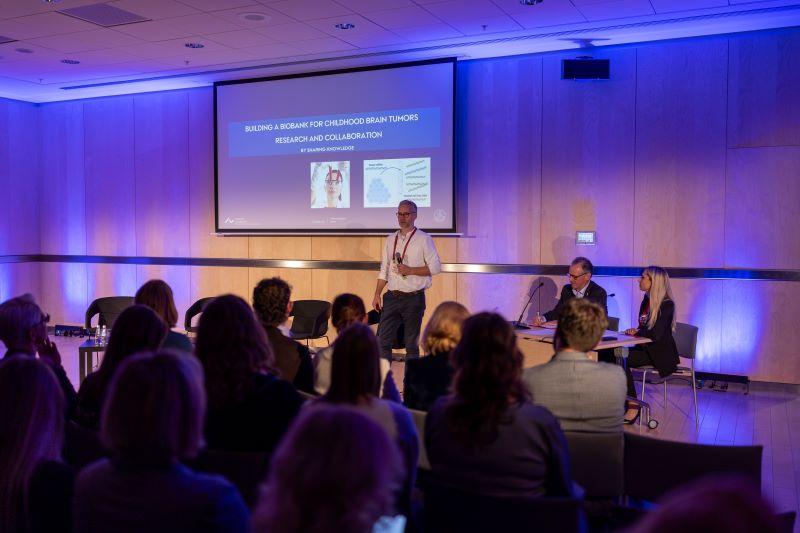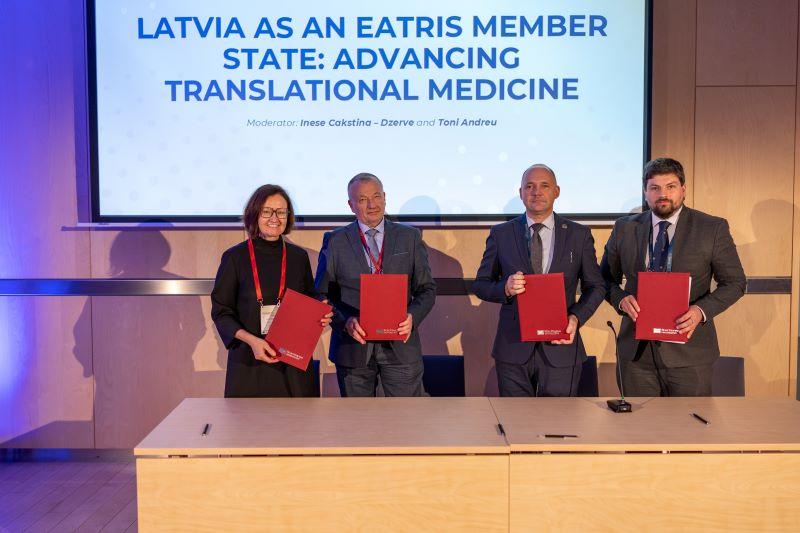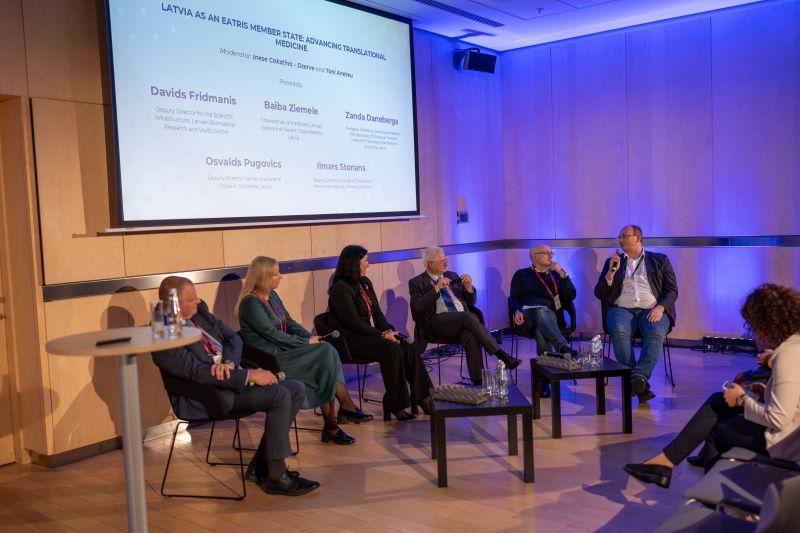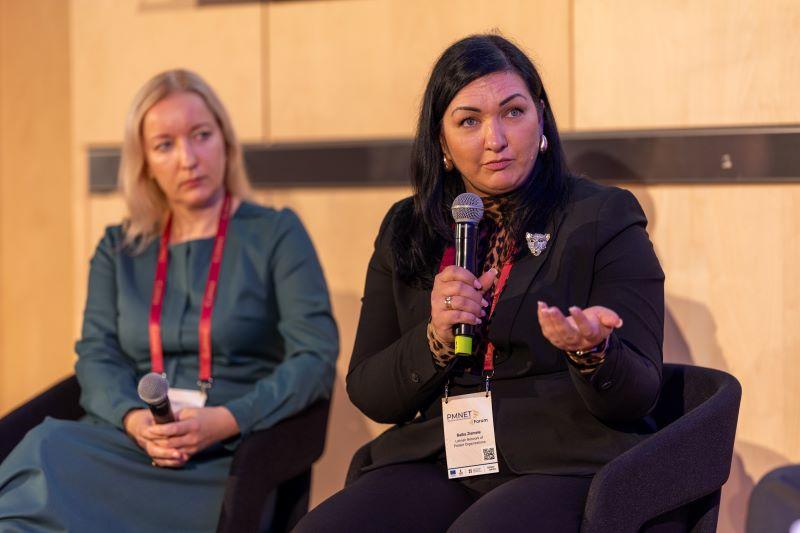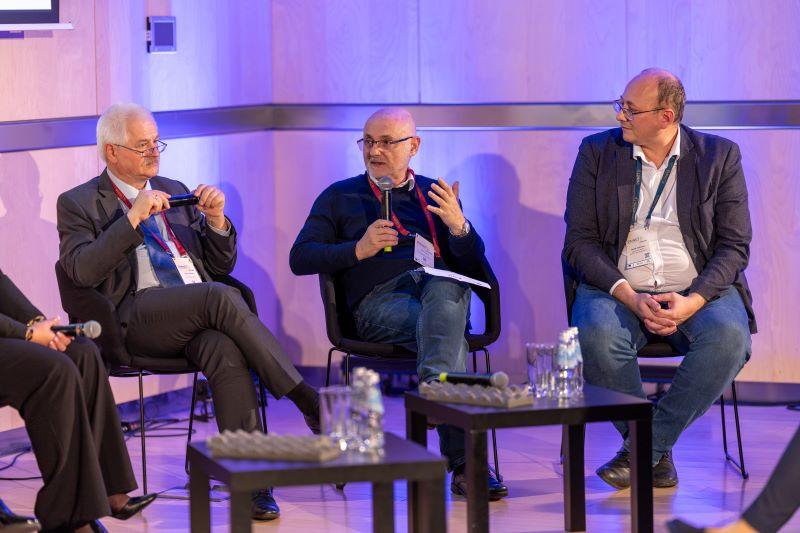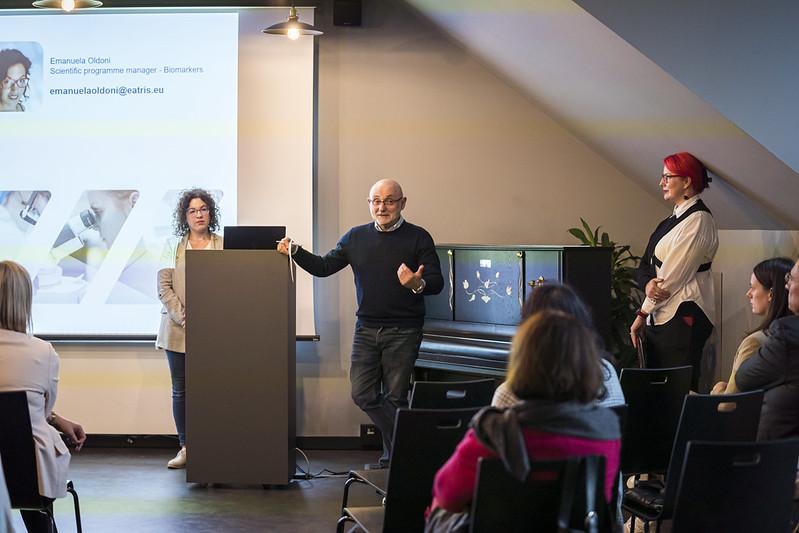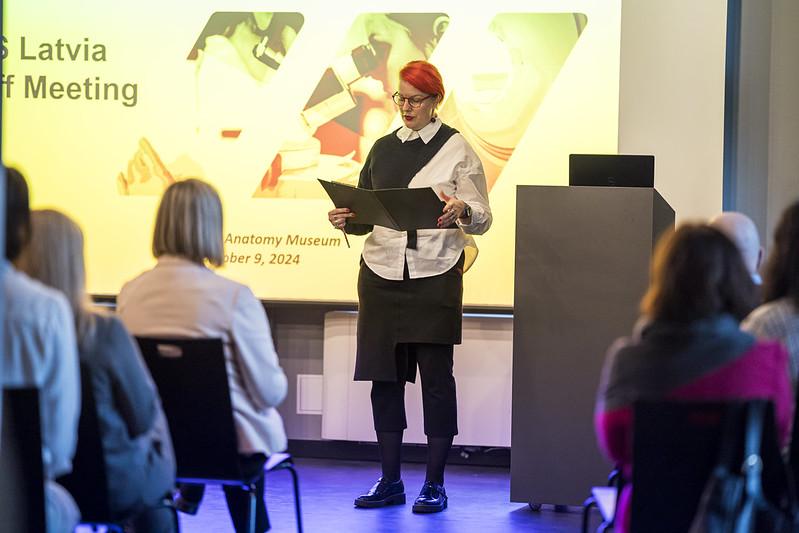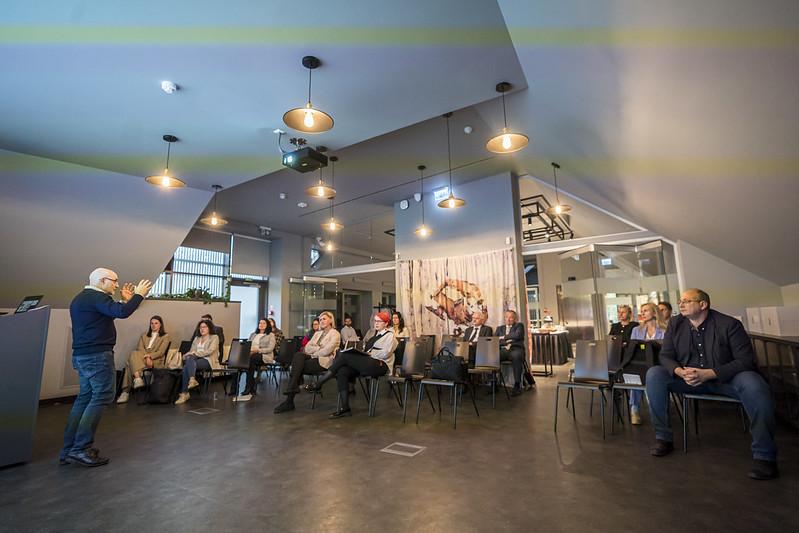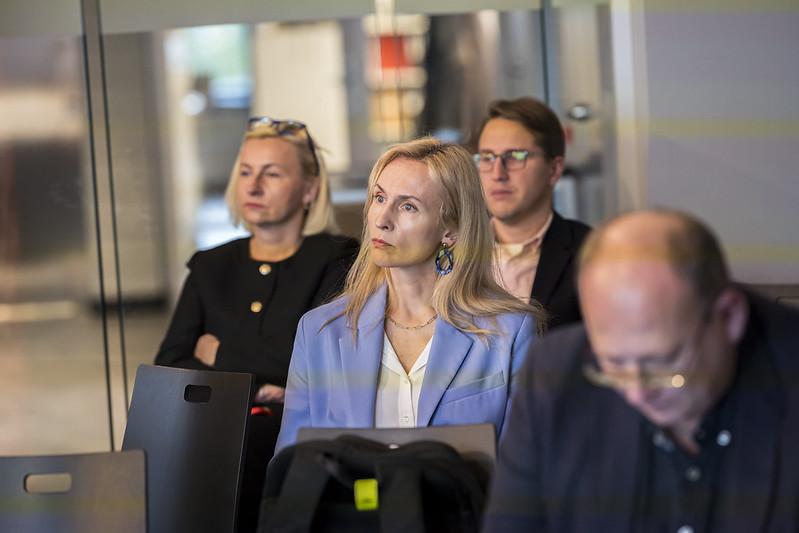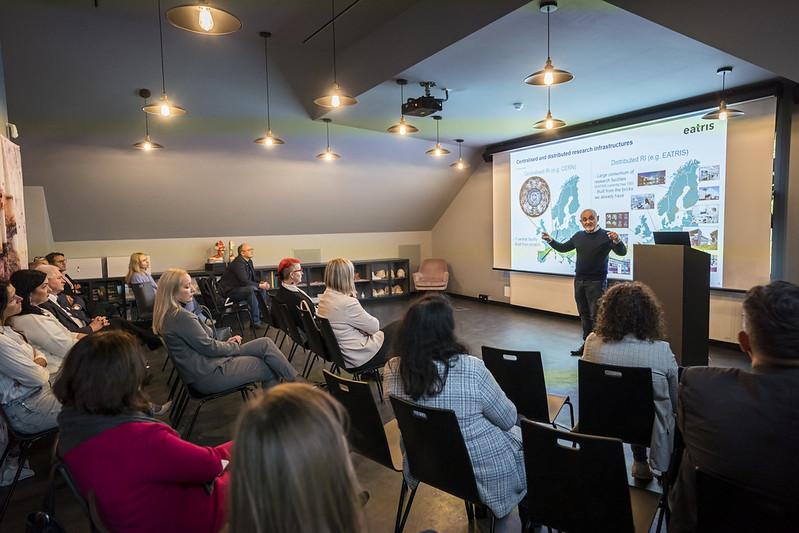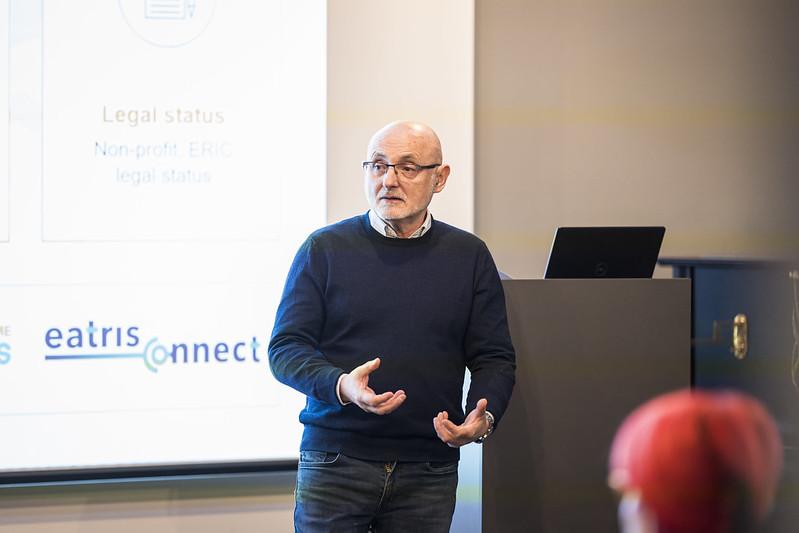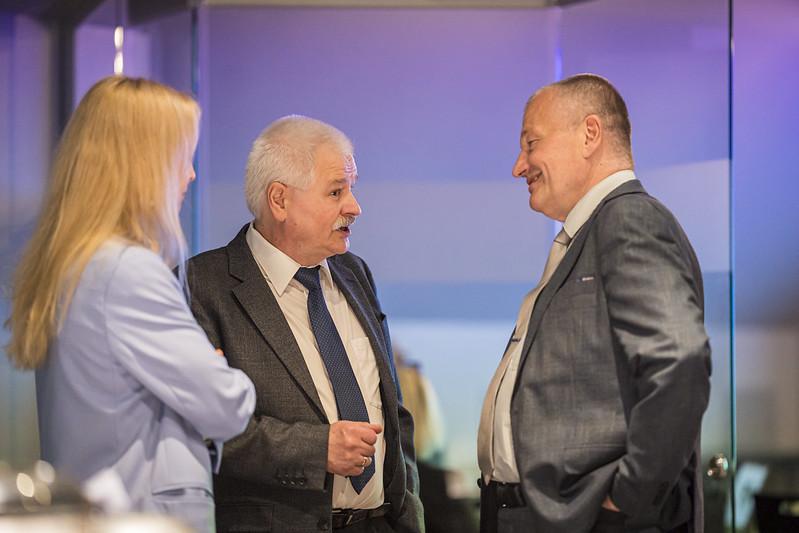RSU holds research infrastructure network EATRIS meeting
On 9 and 10 October 2024, the first meeting of the European Infrastructure for Translational Medicine (EATRIS) Latvia was held at Rīga Stradiņš University (RSU) with the participation of representatives from all national hub partner institutions, the Ministry of Education and Science, as well as EATRIS management in order to facilitate the development of translational medicine in Latvia.
The event served as a platform for discussions about Latvia’s opportunities and role in EATRIS, a consortium working to develop personalised medicine solutions and provide better access to health innovations.
RSU – the EATRIS coordinator in Latvia
RSU is the EATRIS coordinator in Latvia. The EATRIS Latvia initiative plans to provide access to state-of-the- research technologies for national research institutions and clinical partners, as well as to attract resources for development of new treatment tools. As EATRIS is dedicated to implementing medical innovations, Latvian scientists will have opportunity to actively make use of the EATRIS research infrastructure to develop personalised medicine and new therapeutic methods.
EATRIS opportunities for Latvian scientists
Zaiga Nora-Krūkle, Director of the RSU Institute of Microbiology and Virology, notes that ‘EATRIS is a Europe-wide infrastructure that helps translate scientific discoveries into real medical products by providing access to expertise, equipment and resources from more than 150 leading academic centres throughout Europe. EATRIS also works with public funding agencies and policy makers by offering support such as regulatory advice, training and mentoring to foster research and innovation.
The meeting of EATRIS Latvia at RSU is a meaningful step in the development of translational medicine in Latvia, providing local scientists with access to modern research technologies and resources.
By joining the EATRIS network, Latvian research institutions have the opportunity to use wider collaboration opportunities and play a meaningful role in the development of personalised medicine solutions.’
Collaboration with the industry, patient involvement, and discussions
During the event, discussions were held on cooperation within the field and patient involvement, which are essential to fostering medical innovation. This initiative strengthens Latvia’s position within the international research ecosystem, contributing to the development of healthcare and new therapeutic methods. The discussion also focused on current trends and challenges in translational research and the opportunities that the EATRIS platform offers to member states.
On the second day of the event, 10 October, the PMNET (Precision Medicine Networking) Forum took place at the National Library of Latvia where discussions continued on translational medicine research and the role of EATRIS in the Latvian research and innovation ecosystem.
RSU calls for engagement in the development of translational medicine
As the EATRIS coordinator in Latvia, RSU encourages other organisations to join this network and participate in the development of translational medicine. This cooperation provides the opportunity to use modern research infrastructure and resources to develop new treatment solutions, thus promoting innovatios and international cooperation in the field of health care.
By joining EATRIS network, Latvian organisations have the opportunity to become a part of a wider research ecosystem and take part in activities that will help ensure the development and practical application of personalised medicine.

